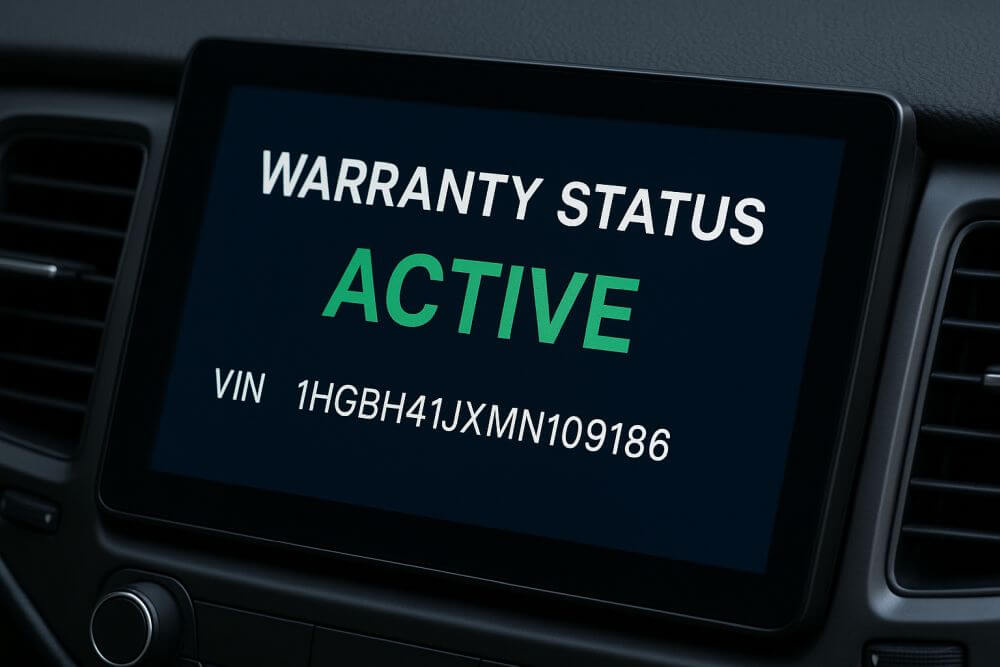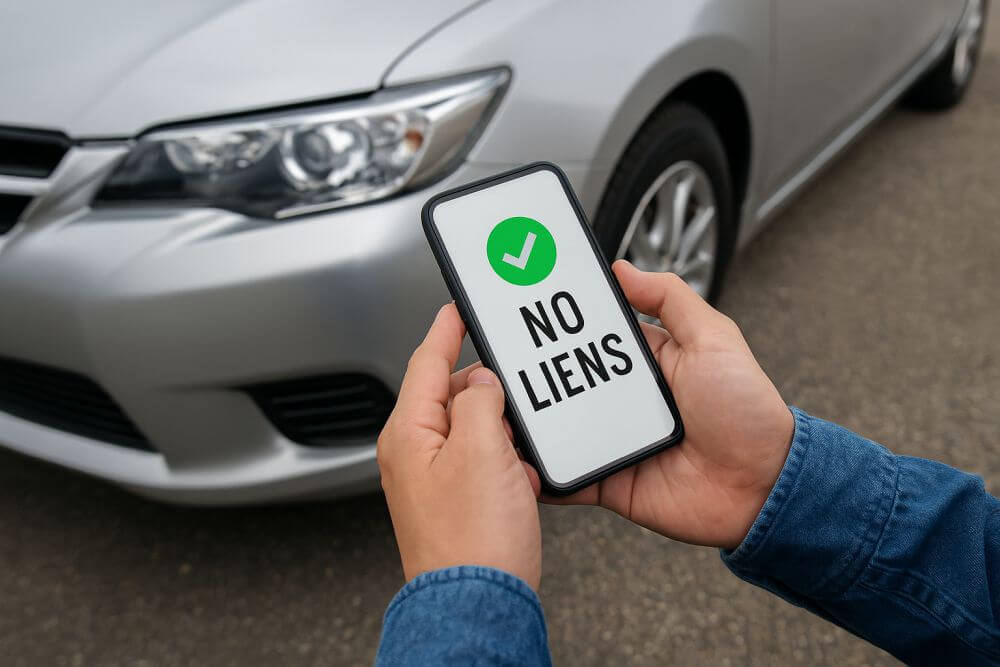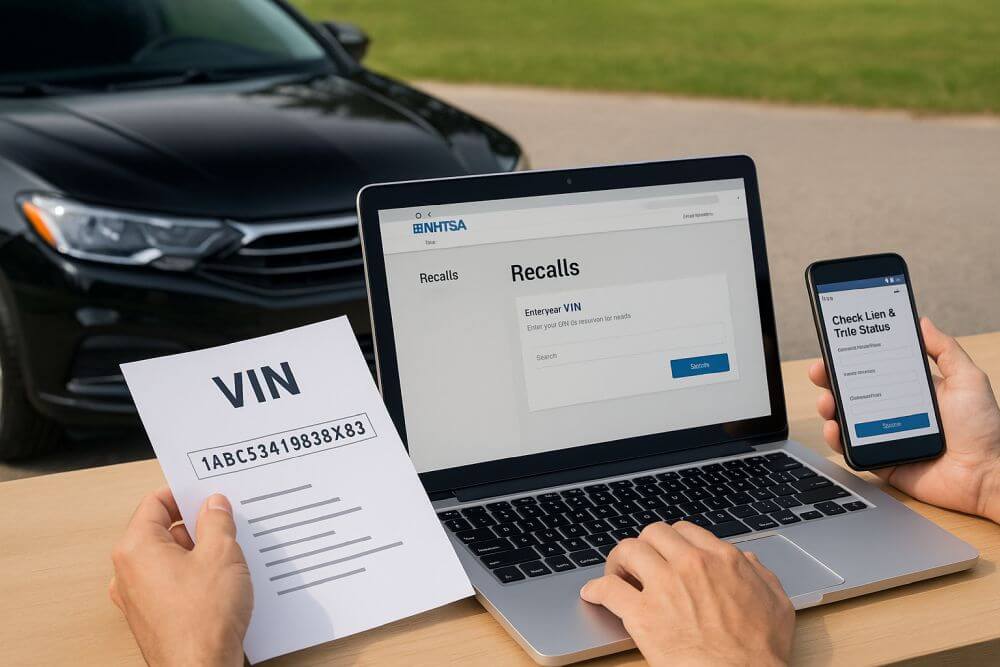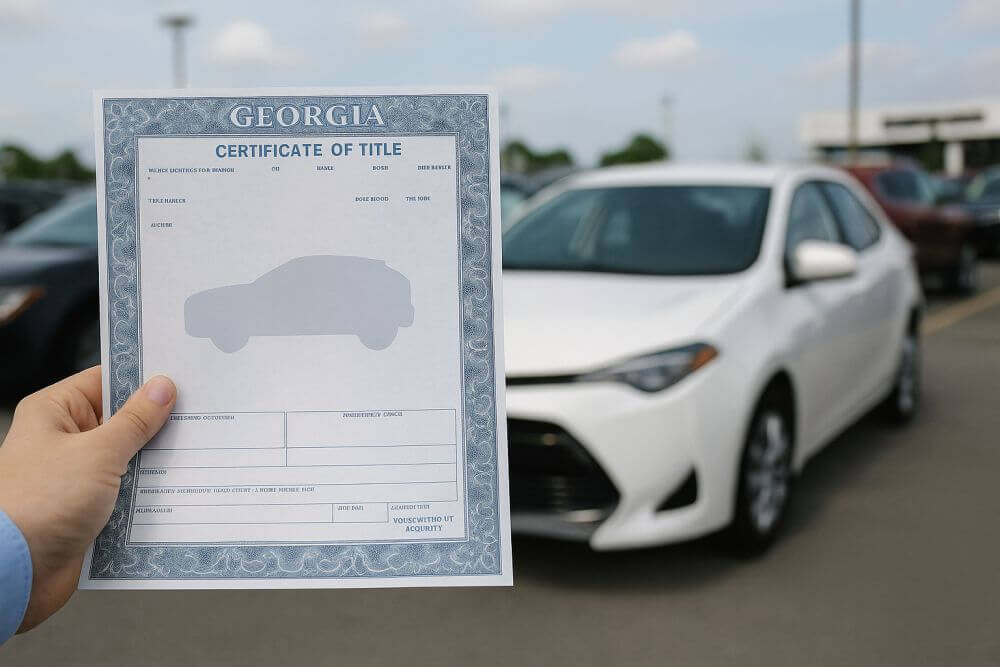Buying a used car—or even owning a relatively new one—often comes with the same pressing question:
Is this car still under warranty?

Whether you’re purchasing from a private seller, trying to avoid unexpected repair bills, or simply curious about your coverage, checking your vehicle’s warranty status is a smart move. But here’s the catch: most people assume they have to call the dealership, sit on hold, or visit in person to get answers.
Good news: you don’t.
Thanks to modern vehicle data tools, you can check if a car is under warranty online using just the Vehicle Identification Number (VIN)—no dealership phone call required.
In this guide, we’ll show you how to confirm a car’s warranty status yourself in minutes using free and reliable tools. Whether you’re a used car buyer, a seller looking to build trust, or a current owner who just wants peace of mind, you’ll find a convenient, DIY solution here.
What Is a Vehicle Warranty?
Let’s start with the basics. A vehicle warranty is a promise made by the manufacturer to repair or replace certain parts if they fail within a specific time or mileage limit. Warranties vary widely but usually fall into one or more of these categories:
🔹 Factory (OEM) Warranties
- Bumper-to-Bumper: Covers nearly everything (typically up to 3 years/36,000 miles)
- Powertrain Warranty: Covers engine, transmission, drivetrain (often 5–10 years or 60k–100k miles)
- Corrosion/Perforation Warranty: Covers rust damage
- Roadside Assistance: Included with many new vehicles
- Emissions Warranty: Required by federal law for catalytic converters and onboard diagnostics
🔹 Extended Warranties
- Optional add-ons purchased separately
- Can come from the manufacturer or a third-party provider
- Terms and coverage vary drastically
Why You Need to Know If a Car Is Still Under Warranty
Knowing a vehicle’s warranty status is important for several reasons:
- You might still be eligible for free repairs
- You can avoid buying a car that’s out of coverage
- You’ll know whether you need an extended warranty
- It builds trust during resale transactions
- You can avoid unnecessary service charges
And if you’re buying a car and the warranty is still active, it’s a major bonus you can negotiate around or advertise.
What You’ll Need: Just the VIN
To get started, you only need one thing: the Vehicle Identification Number (VIN). This is a 17-character alphanumeric code unique to every vehicle.
You can find it:
- On the driver’s side dashboard (viewed through the windshield)
- Inside the driver’s door jamb
- On the vehicle title or registration
- On insurance or service documents
📌 Make sure the VIN matches on all documents and hasn’t been tampered with.
How to Check Warranty Status Without Calling a Dealership
You can check your car’s warranty status online in just a few steps. Here’s how:
Step 1: Use the Warranty Check by VIN Tool
Go to the Warranty Check by VIN page on VinCheckPro.com.
This free tool allows you to instantly search your vehicle’s public and manufacturer-linked records using only your VIN. It pulls available data such as:
- Original warranty start date
- Remaining warranty coverage (if any)
- Vehicle age and mileage
- Powertrain and bumper-to-bumper coverage details
- Transfer status (if warranty coverage is transferable to new owners)
📍 Use our Warranty Check by VIN tool to find out instantly — no logins, no phone calls, no cost.
Step 2: Review the Warranty Start Date
Every factory warranty begins on the original in-service date—the day the vehicle was first sold and delivered to its first owner.
This is critical because even a 2022 or 2023 model may be out of warranty if it was sold early and driven extensively.
VinCheckPro reports show the warranty start date, which you can then use to calculate:
- How many years/months of coverage have passed
- If the car has exceeded its mileage limits
- Whether extended warranty options may still be available
Step 3: Check the Mileage
Warranty coverage is limited not just by time, but by mileage. If a powertrain warranty is good for 60,000 miles, and the car currently has 62,000 miles on it—even within the time limit—it’s no longer covered.
Many sellers or service shops won’t disclose this upfront. That’s why an independent VIN-based tool that pulls odometer readings from registration and service records can be invaluable.
Step 4: Confirm Warranty Transfer (If Buying Used)
Not all warranties transfer automatically to a new owner.
Some manufacturers require that you:
- Fill out a warranty transfer form
- Pay a small fee
- Meet specific timing conditions (e.g., transfer within 30 days of purchase)
Others, especially bumper-to-bumper warranties or extended coverage, may not transfer at all.
Check your VIN report or the owner’s manual to see if the coverage is transferable and still valid.
What If the Warranty Status Isn’t Listed Online?
While most basic warranty data can be retrieved using a VIN lookup, some very specific items (like add-on coverage, prepaid service plans, or tire warranties) may still require:
- Reviewing the original paperwork
- Logging into the manufacturer’s owner portal
- Checking the glovebox or service history
Still, most buyers or owners can get 90% of the info they need using VinCheckPro’s free tools—without ever having to contact the dealer.
Tips for Buyers: How to Use Warranty Info to Your Advantage
Knowing the warranty status before buying a car gives you an edge in negotiations:
| Scenario | Buyer Strategy |
| Warranty still valid | Ask seller to confirm transfer process and provide paperwork |
| Warranty expired | Use it to negotiate a lower price or ask seller to include an extended warranty |
| Limited warranty remaining | Factor in estimated repair risk and time left for free service |
Also, be cautious of sellers claiming “Still under warranty” without documentation. Always verify it yourself via VIN.
Bonus: What Else You Can Learn with a VIN Check
At VinCheckPro.com, you can go beyond just warranty lookups.
Our free VIN reports also include:
- Title brand history (e.g., salvage, flood)
- Accident and damage records
- Lien checks
- Theft and recovery status
- Recalls and factory defects
- Auction history with photos
- Market value estimates
- Ownership type (personal, lease, rental, etc.)
You’ll get a complete picture of the vehicle’s health and status, not just warranty info.
Can You Check Warranty Status Without Violating Privacy Laws?
Yes. The Driver’s Privacy Protection Act (DPPA) prevents personal driver information (like names and addresses) from being shared without consent.
However, vehicle data tied to a VIN—such as manufacturer warranty dates and title status—is publicly accessible and legally usable for research and purchase decisions.
VinCheckPro only uses compliant, aggregated data sources including:
- Manufacturer warranty databases
- DMV and state vehicle registries
- Insurance loss databases
- Public auctions and sales listings
Final Thoughts: You Don’t Need a Dealership to Know Your Coverage
In 2025 and beyond, consumers are more empowered than ever to take control of their car-buying decisions. There’s no need to waste time calling a dealership, waiting on hold, or hunting down paperwork when you can get clear answers in seconds.
If you’re asking, “Is this car still under warranty?”, the fastest way to find out is simple:
👉 Use our Warranty Check by VIN tool to find out instantly
No phone calls. No upsells. Just the info you need, when you need it.


